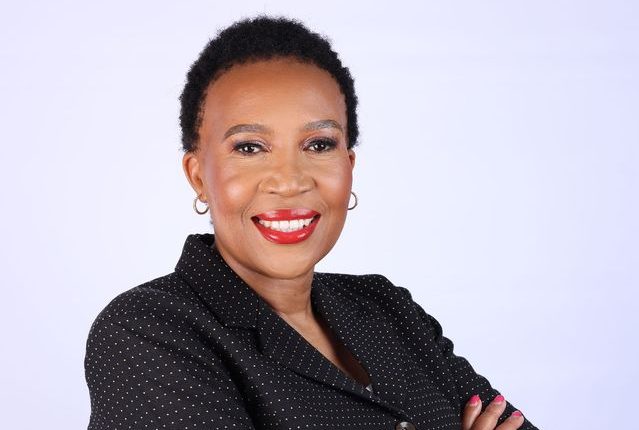Palesa Mbali Group Director, Happy Ralinala, shares insights on the evolving landscape of women in business, emphasising the role of resilience, visibility, and purpose-driven leadership.
With her work and support of initiatives like the Veuve Clicquot Bold Woman Award, she advocates for systemic change and inclusive ecosystems, while encouraging women to lead boldly.
Q: In your view, what has been the most significant change for women in business over the last decade?
A: Over the past 10 years, South Africa has experienced a significant rise in women’s entrepreneurship, solidifying its position as a global leader in this space. According to the 2023 Veuve Clicquot Bold Barometer, 61% of South African women identify as entrepreneurs, with the highest participation among those aged 20 to 29, which is an impressive rate that surpasses global averages and reflects the country’s dynamic entrepreneurial spirit.
Additionally, 72% of aspiring female entrepreneurs in South Africa can name a successful woman they admire, exceeding the global norm. This suggests a strong presence of role models and a supportive business environment that encourages women’s success.
Professor Anita Bosch, who leads the Research Chair for Women at Work at Stellenbosch Business School, stresses the need to overcome structural and cultural barriers that hinder women’s full participation in the economy. Her research advocates for systemic changes in workplace practices to promote gender equality and support women’s advancement in business.
Q: How do you think female entrepreneurs can leverage their resilience and purpose-driven leadership to overcome challenges like limited funding or representation?
A: Navigating through challenges with resilience, creativity, and purpose are not just skills women acquire, they are inherent strengths that enable them to build businesses that go beyond profit, often addressing real community needs. Through purpose-driven leadership, women craft compelling narratives that draw in partners, customers, and investors who share their values.
Resilience enables them to adapt creatively to funding constraints, whether through bootstrapping, forming collaborative networks, or tapping into alternative capital sources like angel investors, crowdfunding, or social impact funds. Moreover, their authentic leadership style fosters trust, loyalty, and inclusive team cultures that sustain long-term growth.
However, funding alone is not the silver bullet. Business success hinges on critical elements that go beyond capital, such as access to markets, non-financial support, and strong operational management. A business can only thrive if there is a willing customer base and a sustainable demand for its products or services, backed by strong operational capability.
Funding itself might not be as scarce as it seems. Often, the way entrepreneurs’ package and present their business determines their access to investment. A compelling and investment-ready proposition, aligned to market needs and regulatory expectations, can open doors to funding, especially from institutions with clear mandates to support women-owned enterprises.
Women must actively seek out diverse funding avenues, whether through development finance institutions, banks, or alternative platforms. Many financial institutions, in fact, have set goals and commitments to invest in women-led or women-owned businesses.
Q: What does it mean for women to create their own tables in business, and how can they ensure inclusivity in their entrepreneurial journey?
Building their own tables in business means women are no longer waiting for acceptance or inclusion from traditional power structures. Instead, they create their own opportunities, define success on their terms, and shape environments where their voices, visions, and values take centre stage. It’s about taking ownership, exercising agency, and reshaping the narrative of influence in the business world.
Still, with this power comes responsibility. I deeply resonate with the principle: “Let’s leave no one behind.” True empowerment isn’t just about personal success – it’s about fostering inclusive ecosystems that uplift others along the way.
Intentional inclusivity is key. It requires amplifying diverse voices and ensuring representation in hiring, partnerships, mentorship, and even the design of products and services. Women entrepreneurs can lead the charge by embedding equity, empathy, and collaboration into the foundation of their businesses.
Ultimately, success is not just measured by individual accomplishments but by the positive impact we have on others. True leadership is reflected in how many we uplift, empower, and create space for on the journey forward.
Q: In your experience, what are some common barriers that prevent women from reaching their full potential in business, and how can these be overcome?
A: In my experience, some of the most common barriers preventing women from reaching their full potential in business are structural, cultural, and psychological.
Structurally, access to funding remains a major hurdle. Women-led/women-owned businesses are still significantly underfunded compared to their male counterparts, despite demonstrating strong performance. This is compounded by limited access to networks, procurement opportunities, and institutional support.
Culturally, persistent gender biases shape perceptions of women’s capabilities, particularly in leadership, finance, and technology. Many women also juggle the dual responsibilities of professional ambition and caregiving, often without sufficient support systems to balance both effectively.
On a psychological level, self-doubt, imposter syndrome, and lack of visible role models can subtly limit how women see themselves and how boldly they show up in high-stakes environment, making them seem risk-averse.
However, this is not a weakness, it is a strength. Risk aversion in this context often translates into measured decision-making, long-term thinking, and sustainability-focused leadership. Women are more likely to ask the hard questions, pressure-test ideas, and build resilient businesses that are better prepared for uncertainty.
That said, women must also be encouraged to take bold, calculated risks, especially when it comes to scaling, investing in innovation, or entering new markets. This is where access to mentorship, success stories, and supportive ecosystems becomes essential. When women are backed, they don’t just take risks, they redefine what’s possible.
Overcoming these barriers requires both systemic and individual action. Financial institutions must intentionally direct capital towards women-led enterprises, and corporates need to embed gender equity in procurement and boardroom representation. Equally important is building peer networks, mentorship circles, and women-focused business accelerators that nurture talent and confidence.
Women must also be supported to own their voice, claim their space, and believe in their right to lead. We must celebrate and amplify female role models, because when women see themselves represented in positions of power and influence, it becomes easier to believe, “That could be me.”



